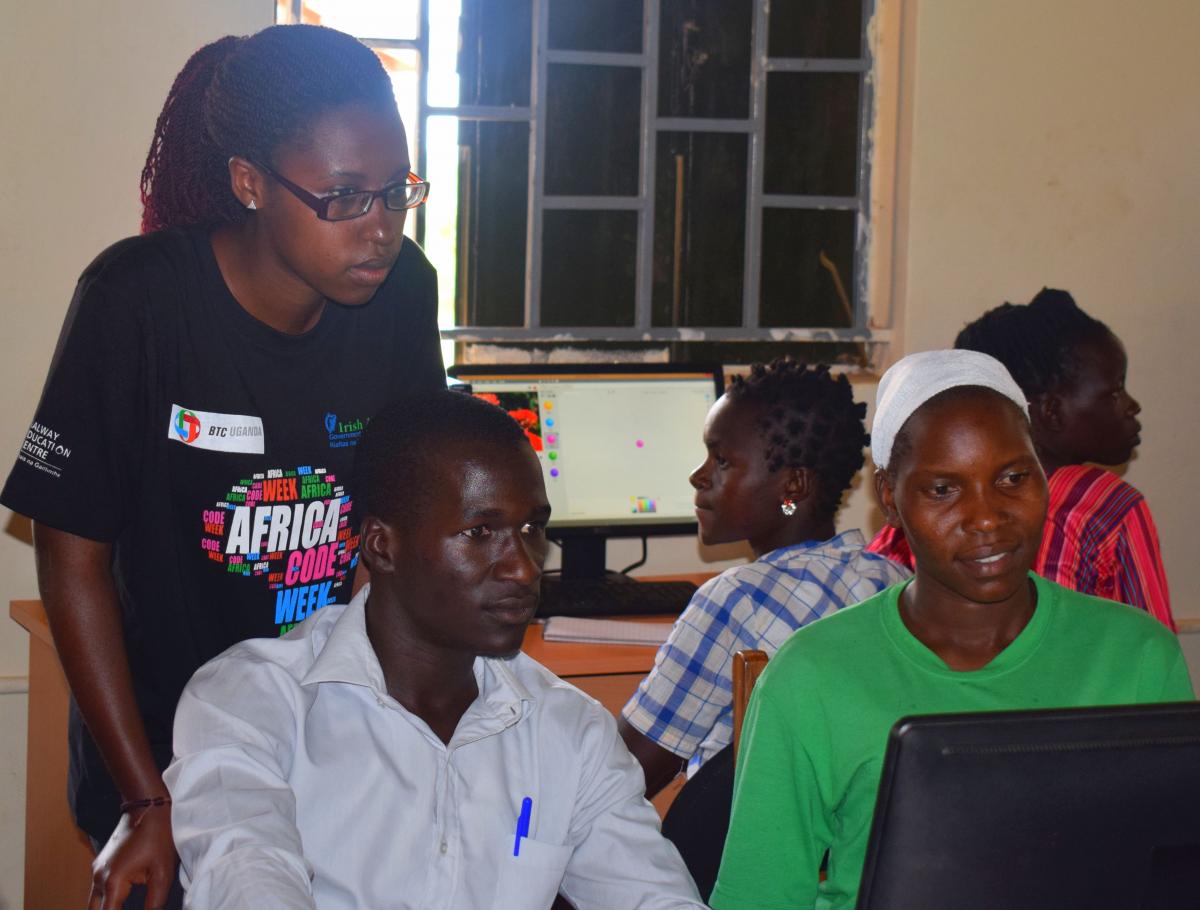Teaching coding from Scratch
With great
curiosity students follow the moving graphic images on the computer screen while
a coding trainer enthusiastically explains how to write simple scripts. For Esther Akiror, a 17-year old
tailoring student at St-Daniel Comboni Polytechnic in Moroto, it is the first
time she learns about coding. “This is
very exciting, today I designed and decorated a cartoon.”
Africa Code
Week 2017 focuses on teaching ‘Scratch’,
a visual programming language developed by the Massachusetts
Institute of Technology (MIT) to lower the technical threshold for coding. Uganda
is one of the 35 African countries hosting over 1,500 coding workshops
involving 500,000 children and youth across the continent. As coding
is considered the “blue collar” skill of the 21st century, it is introduced to empower future generations with the computer skills needed by a modern workforce.
This year a
collaboration was set up between Makerere University and partners such as BTC’s
Support to Skilling Uganda (SSU) project, to introduce coding sessions at Vocational
Technical Institutes (VTI’s) in Albertine-Rwenzori, Karamoja and Yumbe. Instructor teams composed of students from Makerere
University gave coding sessions in VTI’s supported by the SSU project. These
teams trained local students as well as IT-teachers of the VTI’s.
23-year-old
Edith Ndagire, a third year Telecom Engineering student, was part
of the instructor team at Lokopio VTI in Yumbe. For her it was an engaging
experience: “The students here are
enjoying the coding lessons and have grasped faster than I expected. They are
disciplined”.
The Africa
Code Week initiative empowers youth such as Esther Akiror with relevant
computer skills, even allowing them to create incomes for themselves. “As a tailoring student I might use coding to
promote my future business.”
BTC’s
participation in Africa Code Week targets VTIs and populations that are often
neglected when innovative interventions such as digitalization are rolled out.
Dernières actualité de ce projet
Pas d'actualité

